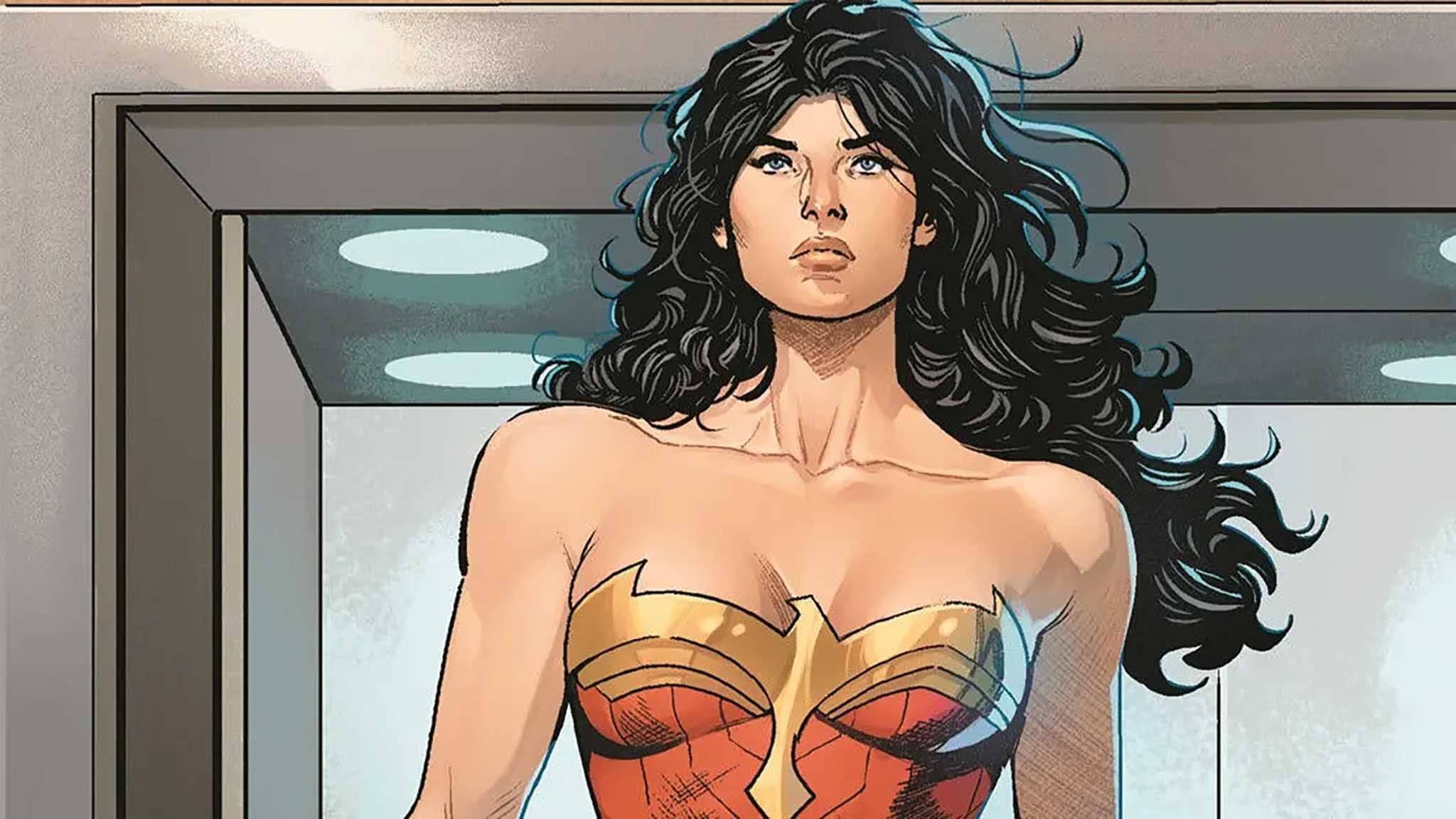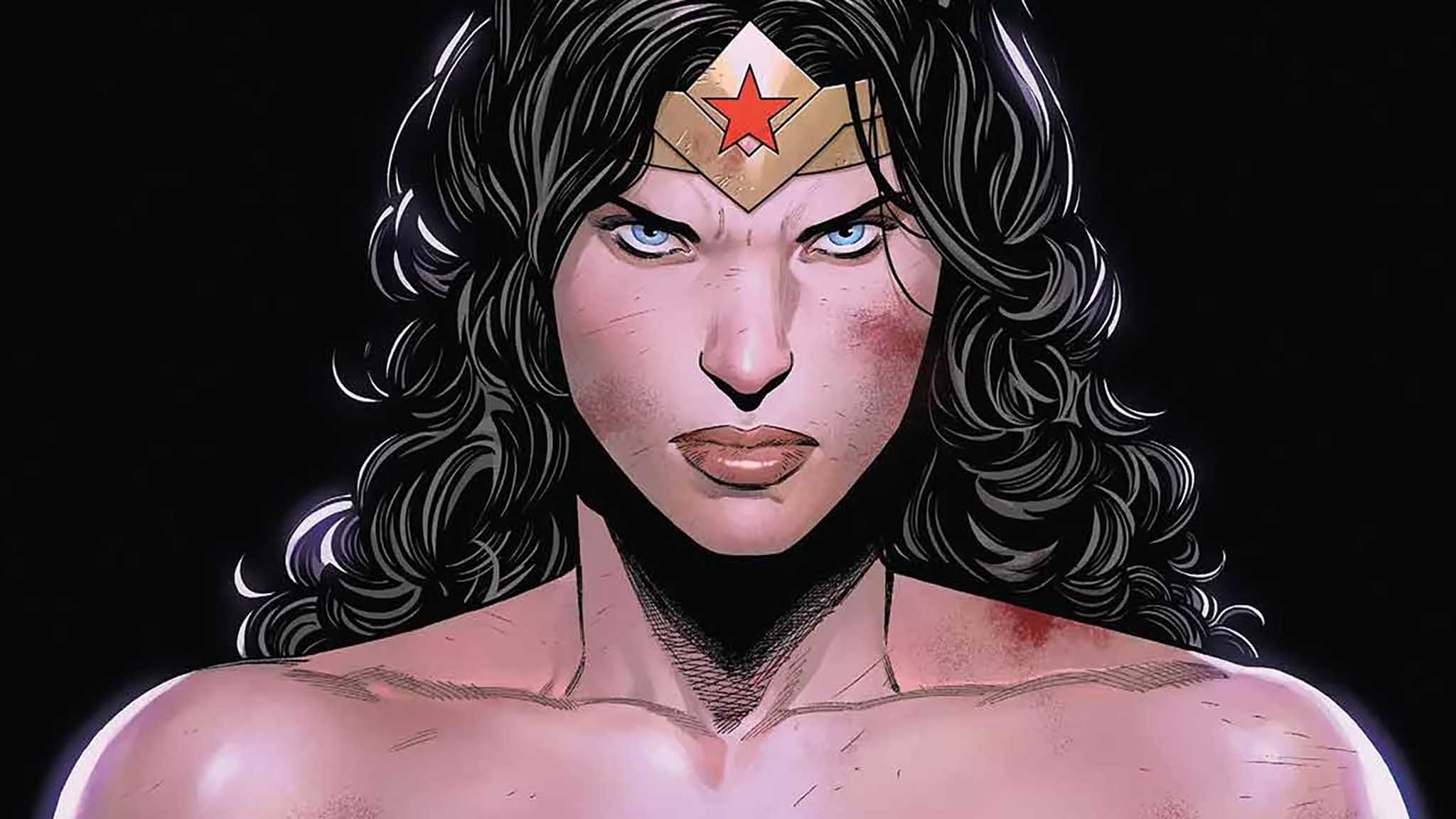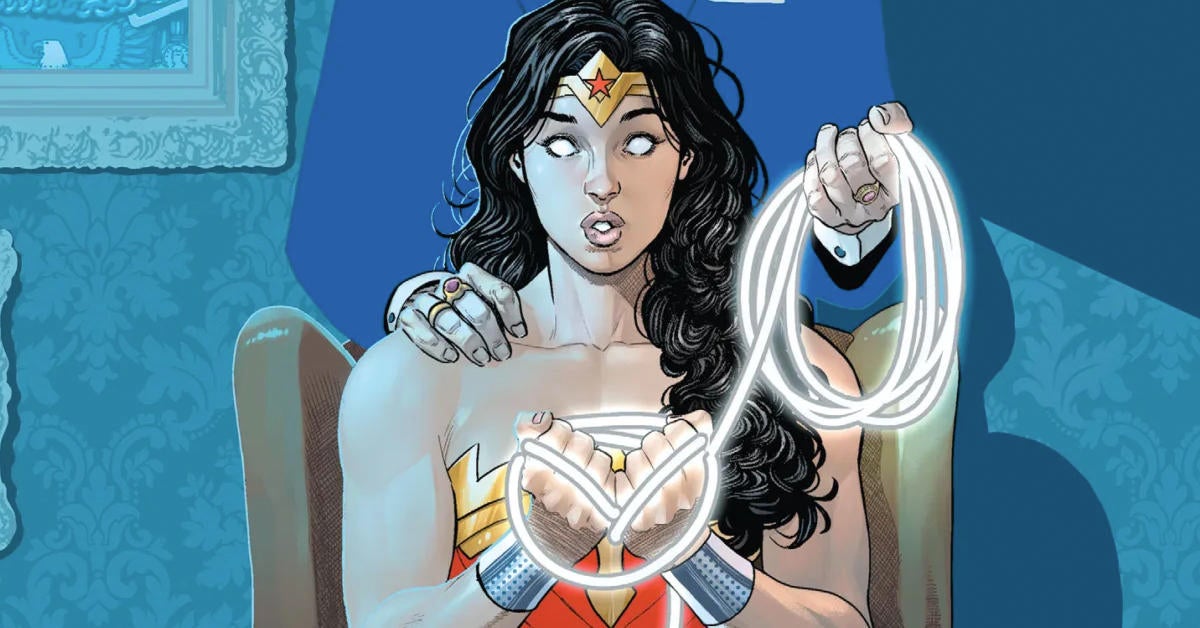
In the world of DC Comics, Wonder Woman is part of the illustrious Trinity and is currently experiencing a resurgence in popularity. The graphic novel, “Absolute Wonder Woman“, has been an unstoppable force, consistently ranking among the top ten since its release and receiving a significant portion of the accolades for the Absolute line. Meanwhile, in another part of the DC Universe, “Wonder Woman” has also been one of DC’s top-selling titles. This series is supported by a star-studded creative team, featuring writer Tom King and artist Daniel Sampere. While King often stirs up debate among fans due to his past as a CIA operative and the unique nature of his writing, I have always admired his work. To be honest, “admire” isn’t quite the right word. I don’t just admire King’s work; I genuinely love the majority of it and I am captivated by “Wonder Woman“.
In King and Sampere’s “Wonder Woman” comic, we meet two new significant characters: the antagonist, the clandestine monarch of the U.S., known as the Sovereign, and Trinity, Wonder Woman’s daughter. The narrative unfolds with Trinity paying a visit to the Sovereign in his confinement, where he explains his predicament. Although Wonder Woman is not the central character, this series effectively portrays her essence. It offers an exhilarating storyline filled with intricate emotional and political narratives, which perfectly aligns with my expectations from this comic. However, as I delve deeper into the book, I can see why some readers have criticisms, and I share their sentiments to a certain extent.
Wonder Woman Has a Number of Issues That Can’t Be Denied

To grasp my perspective, let’s delve into the issues encountered during King’s Wonder Woman comic series run. The most prevalent concern, echoed across online communities such as the Wonder Woman subreddit, is that the narrative doesn’t truly focus on Wonder Woman since she isn’t the central figure. Instead, it seems that the Sovereign has taken the limelight. Given the story is narrated from the villain’s perspective, it lacks depth in portraying Wonder Woman’s emotional responses. While we witness her reactions, as beautifully illustrated by Sampere and other talented artists like Guillermo March, Tony S. Daniel, and Bruno Redondo, there appears to be a lack of genuine exploration into how she is coping with the events unfolding. Despite some criticism suggesting otherwise, Wonder Woman does speak, but her inner struggles remain largely unexplored.
As a film enthusiast, it feels odd when a female-led superhero series is overshadowed by a male character. I get why some fans might feel this way because I do too. While I can appreciate the quality of the art, dialogue, and even the Sovereign’s narrative, I can’t deny that Wonder Woman herself seems to be missing from the equation – a crucial element indeed! This can be particularly aggravating when it comes to King’s work, as he excels in portraying characters in emotional turmoil. His narratives are known for their raw honesty, delving deep into his characters, unearthing their pain, and using that pain to make the growth of his characters – who indeed embark on transformative journeys – all the more inspiring.
However, even this approach feels misplaced to many Wonder Woman fans. Many feel that King’s storytelling style is better suited for limited series rather than ongoing ones like Batman and Wonder Woman. There’s also the issue of a male writer tackling feminist themes, which understandably rubs some the wrong way.
King doesn’t go easy on the characters he creates, and this is evident in his portrayal of Wonder Woman, particularly her relationship with Steve Trevor. Many fans have found this dynamic uncomfortable, feeling that it seems forced or contrived rather than a genuine expression of their feelings. While I appreciate how the relationship is depicted, I understand why some readers might feel differently.
Wonder Woman’s romantic feelings for Steve Trevor, as portrayed in the comics, are not universally accepted within the fandom. This is partly due to the infrequent discussion of Wonder Woman’s bisexuality in mainstream comics and a long-standing focus on Trevor as her primary love interest.
Another point of contention among readers is Steve Trevor’s death in the series, with some criticizing a particular panel that has been widely shared online. However, this debate brings us to another common complaint about Wonder Woman – the portrayal of patriotism.
Some fans find the strong emphasis on patriotic themes in the comic uncomfortable or out of character for Wonder Woman, who is traditionally associated with peace and justice. This is a valid concern, as striking a balance between these themes can be challenging.
In simpler terms, the patriotism displayed in Tom King’s Wonder Woman comic series feels similar to the kind found in Captain America comics, where there’s a deep love for the values and ideals of the United States, even though reality sometimes contrasts sharply with these ideals. However, it’s not overtly jingoistic. This is one aspect that some readers might find troubling due to King’s background in the CIA. While I can understand why people might perceive certain vibes from the book, I also believe that these concerns are somewhat exaggerated.
King’s writing style has always been distinctive, and it’s fair to say that not everyone has appreciated it. Wonder Woman, in particular, seems very much like a typical Tom King story. There are readers, like myself, who really enjoy this style of writing, but the criticisms leveled at it are valid. I respect anyone who doesn’t care for it.
Wonder Woman Is a Destined to be A Contentious Masterpiece

I’m really into the Wonder Woman series penned by Tom King. It perfectly combines elements I enjoy from his other works. The action sequences at the Washington Monument were simply amazing, standing out among all I’ve ever witnessed. I’m deeply engaged in the relationship between Wonder Woman and Steve Trevor. I adore the character of Trinity and crave more insight into her story. I appreciate the book’s exploration of themes such as power dynamics and hidden power structures. I’m always excited when King goes big, and I eagerly anticipate even greater epicness!
Nevertheless, I can’t argue in defense of King’s “Wonder Woman” either. The novel emphasizes feminism, yet it’s not the female protagonist who drives the storyline; a man does. The book tackles misogyny as a significant theme, but it seems somewhat self-contradictory. There are indeed issues with this book that are quite valid. Critics have made strong arguments against it, and their points are hard to dismiss. I’m not sure what the future holds for this book, but it seems destined to be one of those works that either inspires intense admiration or provokes intense disdain. Interestingly, both sides make compelling arguments, which could lead to engaging debates.
Read More
- Masters Toronto 2025: Everything You Need to Know
- We Loved Both of These Classic Sci-Fi Films (But They’re Pretty Much the Same Movie)
- The Lowdown on Labubu: What to Know About the Viral Toy
- Mario Kart World Sold More Than 780,000 Physical Copies in Japan in First Three Days
- Street Fighter 6 Game-Key Card on Switch 2 is Considered to be a Digital Copy by Capcom
- ‘The budget card to beat right now’ — Radeon RX 9060 XT reviews are in, and it looks like a win for AMD
- Valorant Champions 2025: Paris Set to Host Esports’ Premier Event Across Two Iconic Venues
- Microsoft Has Essentially Cancelled Development of its Own Xbox Handheld – Rumour
- Gold Rate Forecast
- Karate Kid: Legends Hits Important Global Box Office Milestone, Showing Promise Despite 59% RT Score
2025-02-24 01:10